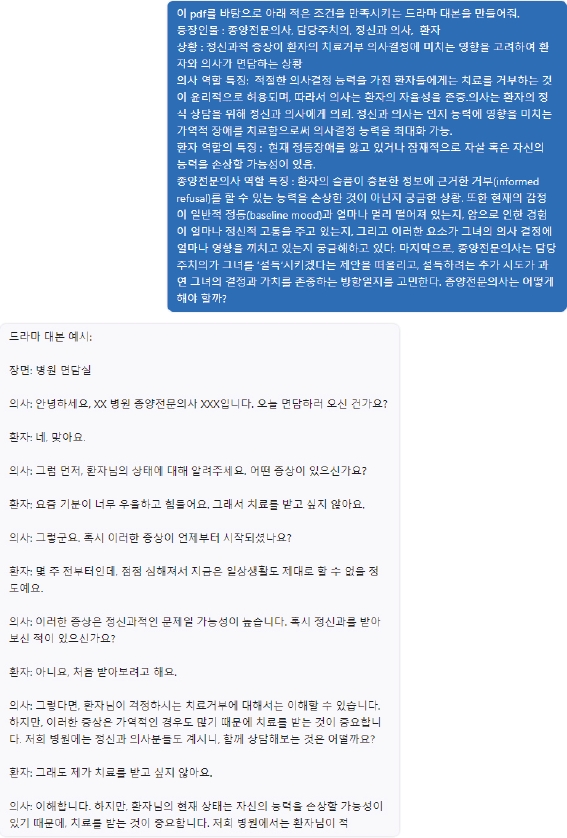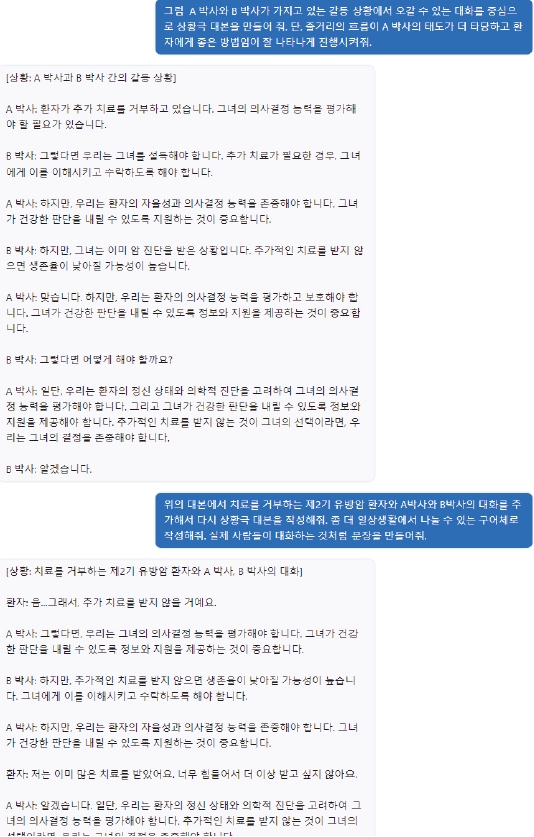2. Rampton V, Mittelman M, Goldhahn J. Implications of artificial intelligence for medical education. Lancet Digit Health 2020;2:e111-2.


3. Wartman SA, Combs CD. Medical education must move from the information age to the age of artificial intelligence. Acad Med 2018;93:1107-9.


4. Cope B, Kalantzis M, Zhai CX, Krussel A, Searsmith D, Ferguson D, et al. Maps of medical reason: applying knowledge graphs and artificial intelligence in medical education and practice. In: Peters MA, Jandrić P, Hayes S, editors. Bioinformational philosophy and postdigital knowledge ecologies. Cham: Springer; 2022. p. 133-59.
6. Lee P, Bubeck S, Petro J. Benefits, limits, and risks of GPT-4 as an AI chatbot for medicine. N Engl J Med 2023;388:1233-9.


7. Ahuja AS, Polascik BW, Doddapaneni D, Byrnes ES, Sridhar J. The digital metaverse: applications in artificial intelligence, medical education, and integrative health. Integr Med Res 2023;12:100917.


10. Uunona GN, Goosen L. Leveraging ethical standards in artificial intelligence technologies: a guideline for responsible teaching and learning applications. In: Garcia MB, Cabrera MVL, Almeida RPP, editors. Handbook of research on instructional technologies in health education and allied disciplines. Hershey: IGI Global; 2023. p. 310-30.
13. Lee H. The rise of ChatGPT: exploring its potential in medical education. Anat Sci Educ 2023 (Epub ahead of print).
14. Winkler-Schwartz A, Bissonnette V, Mirchi N, Ponnudurai N, Yilmaz R, Ledwos N, et al. Artificial intelligence in medical education: best practices using machine learning to assess surgical expertise in virtual reality simulation. J Surg Educ 2019;76:1681-90.


15. Valikodath NG, Cole E, Ting DSW, Campbell JP, Pasquale LR, Chiang MF, et al. Impact of artificial intelligence on medical education in ophthalmology. Transl Vis Sci Technol 2021;10:14.

18. Park CJ, Yi PH, Siegel EL. Medical student perspectives on the impact of artificial intelligence on the practice of medicine. Curr Probl Diagn Radiol 2021;50:614-9.


20. Garg T. Artificial intelligence in medical education. Am J Med 2020;133:e68.


22. Bokken L, Linssen T, Scherpbier A, van der Vleuten C, Rethans JJ. Feedback by simulated patients in undergraduate medical education: a systematic review of the literature. Med Educ 2009;43:202-10.


23. Lane C, Rollnick S. The use of simulated patients and role-play in communication skills training: a review of the literature to August 2005. Patient Educ Couns 2007;67:13-20.


24. Cleland JA, Abe K, Rethans JJ. The use of simulated patients in medical education: AMEE guide No. 42. Med Teach 2009;31:477-86.


25. Kim OJ, Kim HJ, Moon KU, Jung JH. Clinical ethics cases for medical students and general physicians. Seoul: Department of History Medicine & Medical Humanities of Seoul National University College of Medicine; 2020.
26. Jung JS. Current status and future direction of artificial intelligence in healthcare and medical education. Korean Med Educ Rev 2020;22:99-114.


27. Yeh BI. Bedside education will be more important than now in the age of artificial intelligence. KMER 2016;18:58-64.


28. Biswas S. ChatGPT and the future of medical writing. Radiology 2023;307:e223312.


29. Gong B, Nugent JP, Guest W, Parker W, Chang PJ, Khosa F, et al. Influence of artificial intelligence on Canadian medical students’ preference for radiology specialty: a national survey study. Acad Radiol 2019;26:566-77.


33. Ossa LA, Rost M, Lorenzini G, Shaw DM, Elger BS. A smarter perspective: learning with and from AI-cases. Artif Intell Med 2023;135:102458.


34. Zhao H, Li G, Feng W. Research on application of artificial intelligence in medical education. In: 2018 International Conference on Engineering Simulation and Intelligent Control (ESAIC); 2018 Aug 10-11; Hunan, China. pp. 340-2..













 PDF Links
PDF Links PubReader
PubReader ePub Link
ePub Link Full text via DOI
Full text via DOI Download Citation
Download Citation Print
Print



